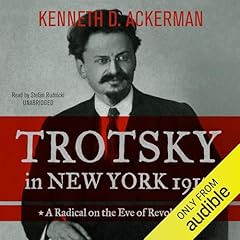
And the Show Went On
Cultural Life in Nazi-Occupied Paris
No se pudo agregar al carrito
Add to Cart failed.
Error al Agregar a Lista de Deseos.
Error al eliminar de la lista de deseos.
Error al añadir a tu biblioteca
Error al seguir el podcast
Error al dejar de seguir el podcast
 Exclusivo para miembros Prime: ¿Nuevo en Audible? Obtén 2 audiolibros gratis con tu prueba.
Exclusivo para miembros Prime: ¿Nuevo en Audible? Obtén 2 audiolibros gratis con tu prueba.Compra ahora por $24.28
-
Narrado por:
-
Stephen Hoye
-
De:
-
Alan Riding
In the weeks after the Germans captured Paris, theaters, opera houses, and nightclubs reopened to occupiers and French citizens alike, and they remained open for the duration of the war. Alan Riding introduces a pageant of 20th-century artists who lived and worked under the Nazis and explores the decisions each made about whether to stay or flee, collaborate or resist.
We see Maurice Chevalier and Edith Piaf singing before French and German audiences; Picasso painting and occasionally selling his work from his Left Bank apartment; and Marcel Carné and Henri-Georges Clouzot, among others, directing movies in Paris studios (more than 200 were produced during this time).
We see that pro-Fascist writers, such as Louis-Ferdinand Celine and Robert Brasillach, flourished, but also that Camus's The Stranger was published and Sartre's play No Exit was first performed - 10 days before the Normandy landings.
Based on exhaustive research and extensive interviews, And the Show Went On sheds a clarifying light on a protean and problematic era in 20th-century European cultural history.
©2010 Alan Riding (P)2010 TantorLos oyentes también disfrutaron:




















Reseñas de la Crítica
So well researched
Se ha producido un error. Vuelve a intentarlo dentro de unos minutos.
This is an explanation of the toxic undercurrents that swept away the Third Republic and installed "Petainism", or collaboration in its place. Under Marshall Petain, many French artists and writers tried to recast the country as a loyal supplicant to the harsh, vicious overlords who occupied Paris and two-thirds of Metropolitan France. The gambit failed. Millions of French soldiers remained prisoners of war in Germany. A million French citizens perished in Nazi death camps. French men and women with Jewish ancestry were hunted down and rounded up, sent to the camps or slaughtered by the Nazi SS and Fascist Milice, a wholly French terror organization.
A half century ago. Marcel Ophuls' documentary, The Sorrow and the Pity, portrayed the real story of France under Nazi occupation. This book is like an expanded footnote to that epic work.
In Defeat, Shame, Sacrifice, and Subversion
Se ha producido un error. Vuelve a intentarlo dentro de unos minutos.
Panasonic view of Vichy
Se ha producido un error. Vuelve a intentarlo dentro de unos minutos.


